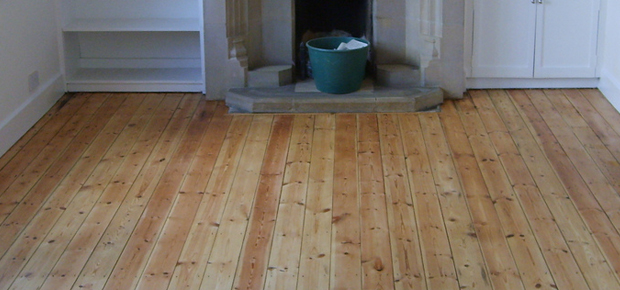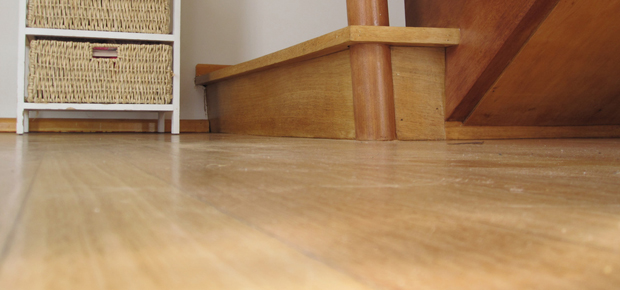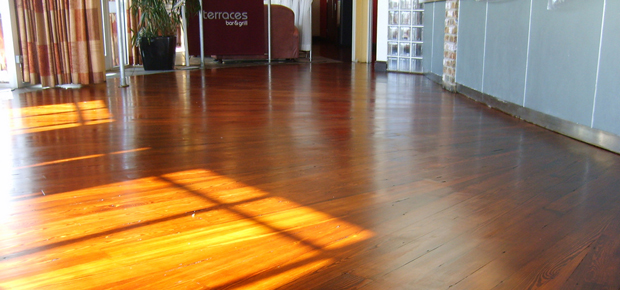
The Sanding Process: Oiling Wood Floors
The antique beauty of floor sanding resides in the finishes. The preference for oiling is growing in popularity among homeowners with wood floors. While the usual polyurethane finishes simply form a shiny layer over floorboards, oil permeates the wood, hardening it and highlighting its grain.
If you are going to oil your wood floors in Kent, you first need to understand the various types of oils available, and how they can affect your floor and your environment.
Linseed oil
This is a natural oil obtained from flax seed. While cheap, it’s very efficient for wood preservation. It’s mostly used to polish darker wood, and it dries quite slowly.
Hard wax oil
When you oil wood floors with this the oil doesn’t only soak in, but also slightly colours the wood and gives its surface a protective film. This might be a good choice if you want a finish that is extremely natural, and at the same time offers the surface of your wood floor a protective layer.
Tung oil
Also known as China wood oil, this is naturally obtained from the Tung tree. It’s superbly durable and is often regarded as the finest when it comes to oiling wood floors.
Teak oil
This oil is a mix of Linseed and Tung oil. It’s perfect for dense woods, makes for easy application using brush or rag, won’t chip or crack, and offers UV protection from the sun.

Here is some of the equipment needed for oiling wood floors:
- White pad
- Squeegee
- Tan pad
- Oil finish
- Paint rollers
- Moisture meter
- Vacuum
- And more

Why oil your wood floors in Kent?
Natural appearance
Oil finishes mimic the natural appearance and appeal of classic floors. Instead of producing a sheen over the wood, as would polyurethane, oil penetrates down into the fibres of the wood, hardening it and accentuating the grain to give it depth; thus the natural look.
Low in volatile organic compounds
While a lot of flooring adhesives and finishes, like polyurethane, contain toxic substances—some of which continue to give off hazardous gasses years after their application, some oil finishes have very little or no VOC. This makes oiling wood floors ideal for people interested in environment-friendly flooring finishes in Kent.
Makes repairs easy
While wooden floors are durable, they, overtime, accumulate scratches, dents, and other forms of damages. Usually, to fix the damage, sanding is required. But with oil finishes, the need for sanding during repairs is reduced, as simply re-oiling will bring back the floor’s pristine look. This in turn doesn’t only save you money, but also spares your home the inconvenience that comes with a full sanding project.
No joint cracking
Through the year, wood fibres expand when they absorb moisture and contract when they release it. Polyurethane-coated floors tend to fissure along the board joints because of this. But, since oil soaks into the fibres of floorboards, it’s integrated with the grain and thus expands and contracts with it, meaning no joint cracking
How we can help you
Oiling is a major part of our floor sanding and restoration process. Your wooden floor isn’t done without it. Our professional sanders have been in the industry long enough to understand every aspects of oiling wood floors in Kent and around the south. We will recommend a suitable oil finish based on the type of wood used for your floor.
No matter the type of oil finish you decide to go with in the end, we will provide you with leading flooring technician in Kent, top equipment, and clear and transparent pricing to ensure that you are 100% satisfied at the end of the process; just like hundreds of customers before you.
Get in touch today if you want to get your wood floors looking like new.
Really pleased with the end result. Would highly recommend the company for their professional approach and high standard of workmanship.
Thanks it looks amazing. Well done to all the guys who did a splendid job on time. Cleared all rubbish aways as well. Highly recommended. – 30/11/2010
The work was carried out efficiently with a professional service. Where the job ended up being more complex that first envisaged the GJP team invested extra time to sort things out. We were very pleased with the work done. Rachael Atkinson 30/10/2010.
I should like to say that we are very impressed by the work done – the floor looks incredible and also the clear up job afterwards was very professional. There was no mess at all and it was dust free. (I’m not sure how you managed that). Oliver Gillespie 10/12/2010.
Stunning bamboo flooring beautifully fitted – really neat . Everything done to minimise stress & disruption. Polite friendly service from beginning to end. 100% satisfaction.
